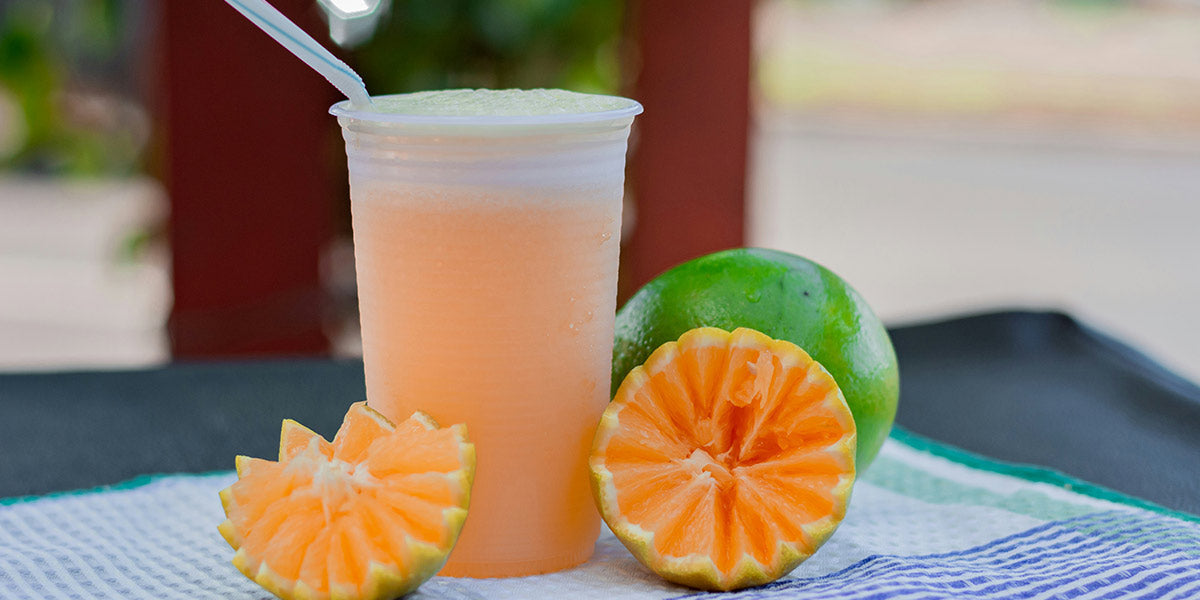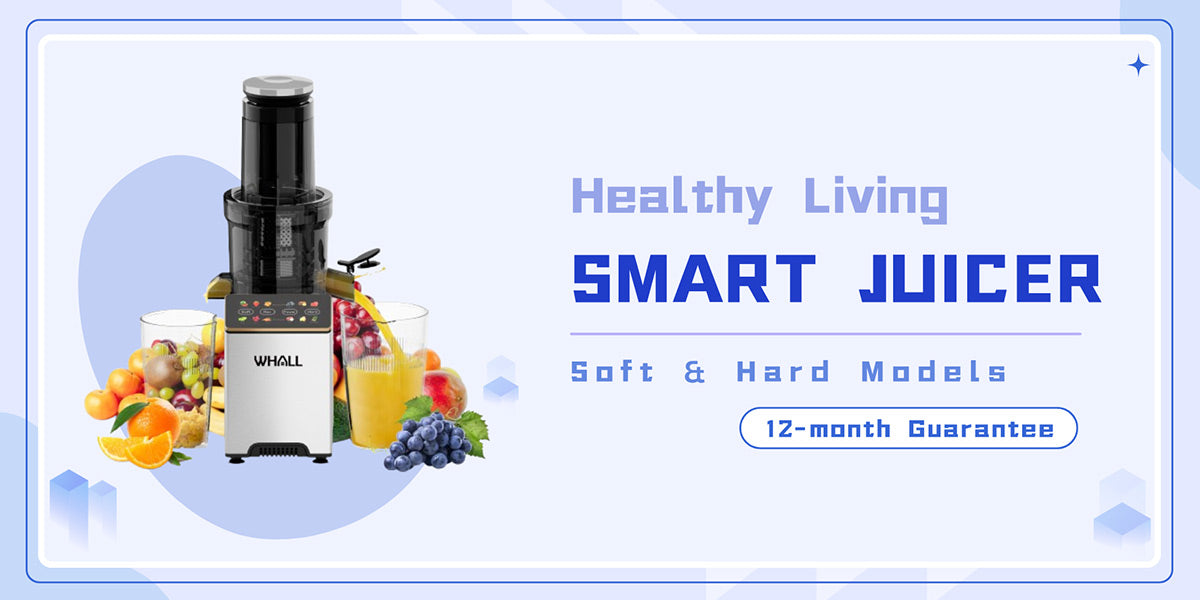In today's health-conscious world, more and more people are recognizing the benefits of natural beverages for their wellbeing. Carrot juice, as a nutritionally rich drink, is becoming an important component of healthy diets. The slow juicer (also known as a cold-press juicer), with its unique juicing method, can maximize the retention of nutrients in carrots, making it the ideal tool for producing high-quality carrot juice. This article will detail the numerous benefits of drinking carrot juice and explain why a slow juicer is an indispensable health assistant in your kitchen.

Seven Major Health Benefits of Carrot Juice
1. Rich Source of Vitamin A for Eye Health
Carrots are most famous for their high beta-carotene content, which converts to vitamin A in the body. One cup (240ml) of fresh carrot juice provides over 400% of the recommended daily intake of vitamin A. Vitamin A is crucial for maintaining good vision, particularly night vision. Studies show that regular consumption of carrot juice can help prevent night blindness and age-related macular degeneration.
Smart slow juicers extract beta-carotene from carrot fibers more effectively through gentle pressing. Compared to high-speed centrifugal juicers, the extraction rate is 15-20% higher, meaning you get more nutrition from each carrot.
2. Powerful Antioxidant Effects for Anti-Aging
Carrot juice is rich in various antioxidants, including beta-carotene, alpha-carotene, lutein, zeaxanthin, and numerous polyphenols. These antioxidants effectively neutralize free radicals in the body, reducing oxidative stress damage to cells, thereby slowing the aging process and lowering the risk of chronic diseases.
Cold-press juicing technology avoids the heat generated by high-speed rotation (traditional juicers can reach temperatures above 50°C), which can destroy heat-sensitive antioxidants. Slow juicers operate at room temperature, ensuring the integrity of these precious antioxidant compounds.
3. Supports Cardiovascular Health
Research indicates that the potassium, antioxidants, and dietary fiber in carrot juice help maintain healthy blood pressure and cholesterol levels. Potassium helps regulate sodium levels in the body, reducing blood vessel pressure, while the unique plant compound falcarinol in carrots shows potential for lowering cholesterol.
Slow juicers retain more soluble fiber from carrots, which binds with bile acids to help eliminate excess cholesterol. In contrast, traditional juicers separate most fiber into pulp, reducing this health benefit.

4. Boosts Immune System Function
Carrot juice is an excellent source of vitamin C and contains various B vitamins and minerals like iron and copper. These nutrients work synergistically to enhance immune system function. Especially during seasonal changes, a daily cup of carrot juice can help build stronger bodily defenses.
Slow juicing introduces minimal air (oxidation is a major cause of nutrient loss), thus better preserving easily oxidized nutrients like vitamin C. Tests show that slow-pressed carrot juice retains over 30% more vitamin C than traditional juicers.
5. Promotes Digestive Health
Although juicing removes some insoluble fiber, carrot juice still retains considerable soluble fiber, which acts as a prebiotic to nourish beneficial gut bacteria. Additionally, certain compounds in carrot juice help regulate stomach acid secretion, relieving heartburn and indigestion.
The unique pressing method of slow juicers produces a smoother juice texture, making the suspended micro-fiber particles easier for intestinal absorption and improving the bioavailability of these beneficial components.
6. Benefits Skin Health and Beauty
The vitamin A and antioxidants in carrot juice promote skin cell repair and regeneration, reducing wrinkles and dryness. Regular drinkers often notice smoother, more radiant skin. Beta-carotene also imparts a natural "glow" to the skin, healthier and longer-lasting than artificial tanning.
Since slow juicing maximizes the retention of phytonutrients and active enzymes in carrots, the concentration of these "beauty factors" in the juice is higher, making the cosmetic effects more noticeable.
7. Potential Anti-Cancer Properties
Preliminary studies suggest that certain bioactive compounds in carrots, such as falcarinol and polyacetylenes, may have anti-cancer properties. While more clinical research is needed, regular consumption of carrot juice as part of a healthy diet may help reduce the risk of certain cancers.
The gentle extraction process of slow juicers better releases and protects these potential anti-cancer substances, whereas the heat and oxidation from high-speed juicing may reduce their activity.
Why a Slow Juicer is the Best Choice for Making Carrot Juice
Understanding the many benefits of carrot juice, choosing the right juicing tool is equally important. Slow juicers offer significant advantages over traditional centrifugal juicers for making carrot juice:
-
Higher Nutrient Retention: Slow juicing avoids heat generation and oxidation, preserving more vitamins, enzymes, and phytonutrients. Research shows slow-pressed juice contains 20-60% more nutrients than traditional juice.
-
Higher Juice Yield: The powerful pressure of slow juicers extracts more juice from carrots, averaging 15% higher yield than centrifugal juicers, saving significant ingredient costs over time.
-
Longer Freshness: Due to lower oxidation, slow-pressed carrot juice stays fresh for 48-72 hours when refrigerated, whereas traditional juice is best consumed within 20 minutes.
-
Better Drinking Experience: Slow-pressed juice has a richer taste and smoother texture, without the separation and foam common in traditional juice.
-
Quieter Operation: Slow juicers typically operate below 60 decibels, compared to 80-90 decibels for high-speed juicers, minimizing disturbance to household members.
-
Versatility: High-quality slow juicers can handle not only hard vegetables like carrots but also leafy greens and wheatgrass, expanding your healthy beverage options.

How to Make Perfect Slow-Pressed Carrot Juice
Making carrot juice with a slow juicer is very simple:
-
Choose fresh, organic carrots and wash thoroughly (no need to peel, as many nutrients are in or near the skin)
-
Cut carrots to fit the juicer's feed chute
-
Start the machine and slowly feed in the carrots
-
Collect the fresh juice and drink immediately or store in an airtight glass container in the refrigerator
For enhanced flavor and nutrition, try these combinations:
-
Carrot + Apple + Ginger: Classic sweet and spicy mix
-
Carrot + Orange: Double the vitamin C
-
Carrot + Beetroot: Powerful detox combo
-
Carrot + Celery + Cucumber: Refreshing low-sugar option
Consumption Recommendations and Precautions
While carrot juice is very healthy, there are some considerations:
-
Moderate Consumption: Limit to 2 cups (480ml) per day. Excessive intake may cause temporary skin yellowing (carotenemia), which is harmless and fades with reduced consumption.
-
Diversified Diet: Carrot juice shouldn't replace a balanced diet. Rotate with other vegetable juices.
-
Diabetic Caution: Carrot juice contains natural sugars. Diabetics should consult a doctor and monitor blood sugar response.
-
Best Drinking Time: Optimal absorption occurs when consumed on an empty stomach in the morning or as a healthy snack between meals.
-
Organic Preference: Carrots easily absorb pesticides from soil. Choose organic when possible.
Investing in Health: Choosing the Right Slow Juicer
With many slow juicer models available, consider these factors:
-
Pressure: Typically 2000-8000 pounds; higher pressure means higher yield
-
Feed Chute Size: Larger sizes reduce prep time
-
Easy Cleaning: Simple designs are easier to maintain
-
Brand Reputation: Choose brands with good after-sales service
Although slow juicers require a higher initial investment, their superior nutrient extraction, ingredient savings, and long-term health benefits make them a worthwhile health investment. Many users report that after getting a slow juicer, not only does their carrot juice quality improve, but their whole family's fruit and vegetable intake significantly increases, leading to comprehensive health improvements.
Conclusion
Carrot juice is a natural nutritional treasure bestowed by nature, offering countless health benefits from boosting immunity to enhancing beauty, protecting vision to aiding digestion. As a representative of modern kitchen technology, slow juicers can maximize the release and preservation of these precious nutrients, making each cup of carrot juice a concentrated health elixir.
In our fast-paced world, investing in a quality slow juicer and spending a few minutes daily to prepare fresh carrot juice for yourself and your family is a simple yet effective health habit. This small change can make a big difference, injecting new vitality into your healthy lifestyle. Why not take this step today and make slow-pressed carrot juice part of your daily health ritual? Your body will thank you for this decision!




Leave a comment
This site is protected by hCaptcha and the hCaptcha Privacy Policy and Terms of Service apply.